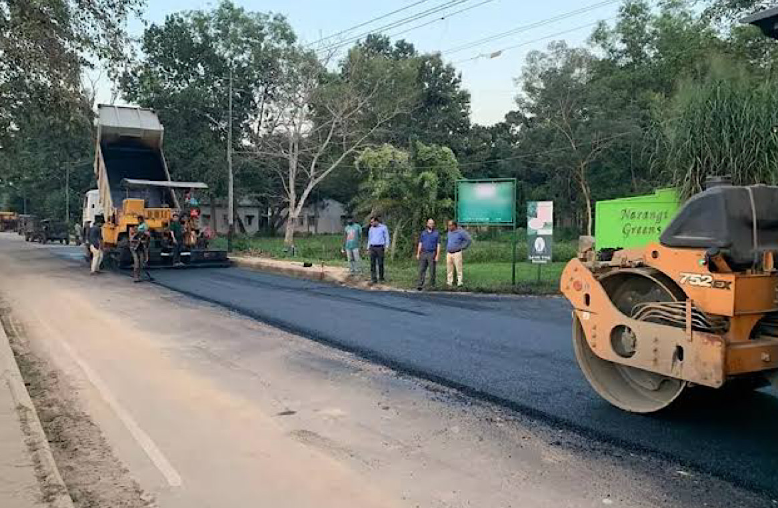Jaipur Military Station: Second in India to Construct Plastic Waste Road (GS Paper 3, Environment)

Introduction
- In a significant step towards sustainable development, Jaipur Military Station has become the second military station in India to construct a road using plastic waste.
- This eco-friendly initiative reflects the Indian Army's commitment to sustainability and environmental conservation.
- Following the success of Narangi Military Station in Assam, Jaipur's new road demonstrates the viability and benefits of utilizing plastic waste in infrastructure projects.
Key Points
- Second Military Station: Jaipur Military Station is the second in India to construct a road using plastic waste, following Narangi Military Station in Assam.
- Inauguration: The road was inaugurated on June 26, 2024, by Major General R.S. Godara, General Officer Commanding of 61 Sub Area.
- Road Details: The 100-meter-long road stretches from Sagat Singh Road under bridge to Cubs Corner complex.
- Sustainability: Constructed under the Indian Army’s policy to create sustainable and green military stations, with contributions from GE (South), CE Jaipur Zone, and Deep Constructions Pvt. Ltd.
- Durability: Plastic waste roads are more durable, suffer less wear and tear, resist water damage, and increase sustainability.
First Military Station with Plastic Waste Road
- Narangi Military Station: Located in Guwahati, Assam, Narangi Military Station was the first in India to construct a plastic waste road in 2019.
Government Policy on Plastic Waste Roads
- 2015 Policy: The Indian government allowed the use of plastic waste in constructing National Highways on a pilot basis.
- 2017 Update: Permitted mixing 10 percent plastic waste with hot bitumen for road construction.
- 2023 Mandate: Made it mandatory to use plastic waste in the construction and repair of service roads of national highways within a 50-kilometer radius in urban-rural areas with populations of five lakh or more.
Benefits of Plastic Waste Roads
- Coal Tar Usage: Consume 15 percent less coal tar.
- Durability: Last 10 years instead of the conventional five years.
- Water Resistance: Do not develop potholes due to plastic’s water-resistant properties.
Environmental Impact
- Pollution Mitigation: Helps reduce environmental pollution and air pollutants from burning plastics.
- Agricultural Impact: Prevents blockage of seed germination and water absorption in agricultural fields.
- Animal Safety: Reduces the risk of animals choking on plastic bags found in garbage.
Pioneer of Plastic Roads
- Professor Rajagopalan Vasudevan: Developed and patented the technique for using plastic waste in road construction.
- Technique: Involves mixing plastic waste with heated bitumen and coating the mixture over stones used for making roads.
- Recognition: Known as the Plastic Man of India and honored with the Padma Shri in 2018.
Success Stories
- Adoption: Cities like Chennai, Delhi, Jamshedpur, Pune, Indore, and Lucknow have adopted the technique.
- Durability: Roads built with plastic waste have proven to be more durable and environmentally friendly.
- CPCB Audit: Confirmed that roads built with plastic waste did not develop any potholes, rutting, or ravelling even after four years.
Conclusion
- Jaipur Military Station's initiative to construct a road using plastic waste aligns with the Indian Army's commitment to sustainability and environmental conservation.
- This approach not only enhances the durability of the roads but also contributes significantly to mitigating plastic pollution and promoting green practices.


